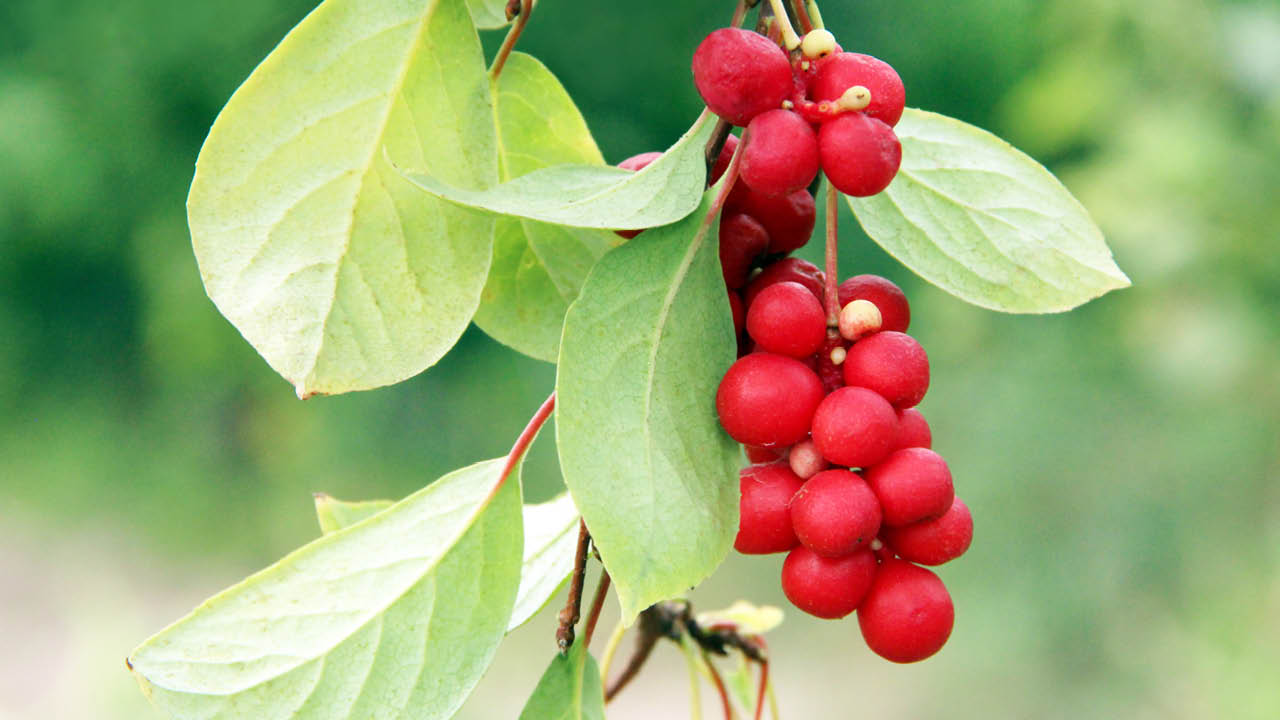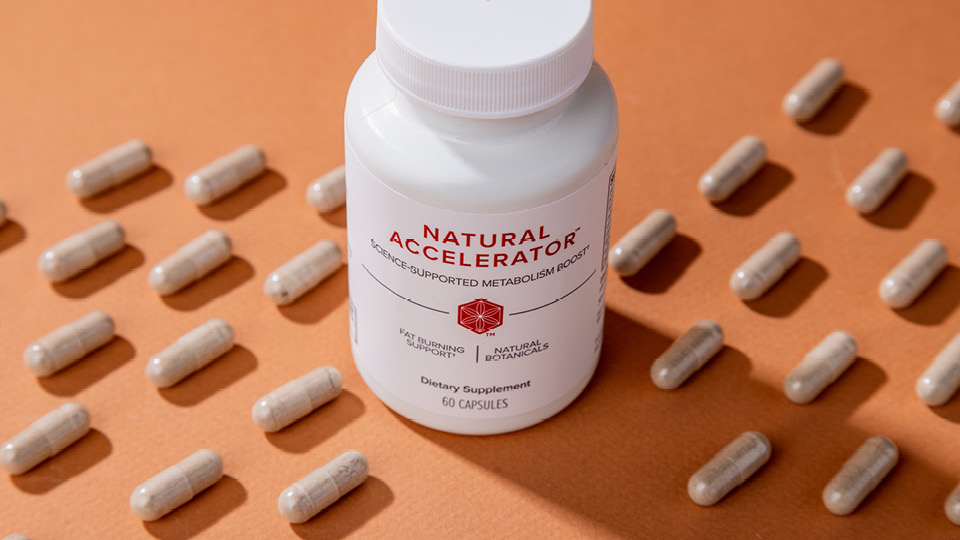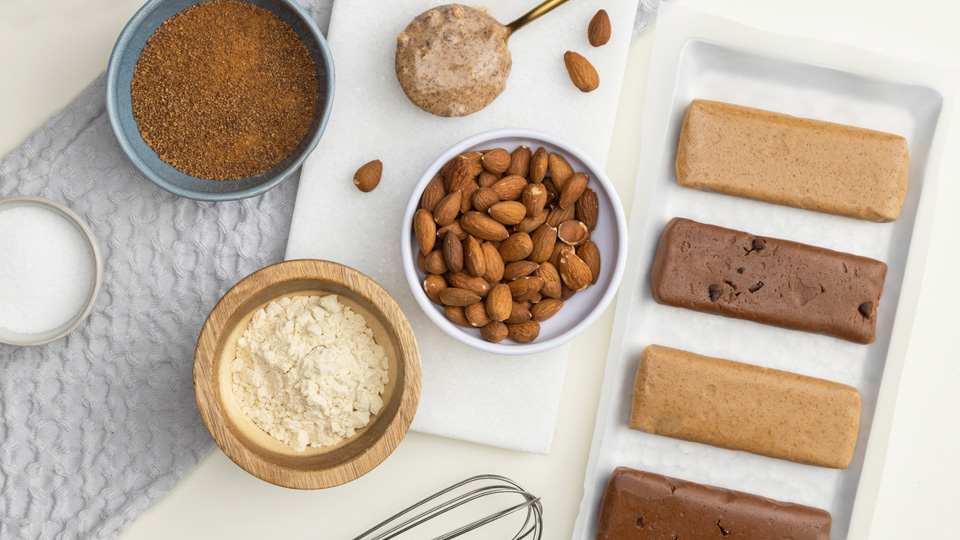Schisandra chinensis sounds like a new health ingredient about to go viral like echinacea or elderberry. But believe it or not, schisandra has been used for thousands of years. Known as the five-flavored fruit, schisandra has long been used in traditional Chinese medicine (TCM). Today, researchers continue to study what makes this adaptogen so beneficial.
Schisandra in Ancient Chinese Medicine
First noted in 2697 B.C. in TCM’s “Shen Nong Ben Cao Jing” book, schisandra berry is said to balance qi (energy flow) and aid the mind and body (1). These little red berries are cultivated deep in the forests of northeast China and Russia and are known for having five flavors: sweet, sour, salty, bitter, and pungent. With these five flavors, TCM teaches the “Five Element” theory that schisandra berry benefits the five visceral organs: heart, liver, lungs, kidneys, and spleen.
In traditional Russian medicine, schisandra is used as a tonic to improve vitality and mental function (2). By the early 1960s, the USSR began deeper research into schisandra for its positive impact on endurance and mental performance. These studies found that the polyphenol-rich compounds called lignans and other phytonutrients in schisandra berries help to reduce fatigue and oxidative stress by contributing to normalized nitric oxide and cortisol levels in the blood (3). With these effects, participants were able to work longer and with fewer exhaustion-related errors.
As schisandra continues to gain global recognition, more recent research focuses on its neuroprotective benefits and explores its extensive adaptogenic properties (4).
The Phytochemical Composition of Schisandra
Schisandra berries contain over 65 potent bioactive phytonutrients, including lignans, polysaccharides, and vitamins. However, it is schisandra’s unique profile of lignans and polysaccharides that remains the focus of scientists.
Research suggests that these constituents can contribute to the body’s defenses against free radicals and offer support for brain health (5). Several studies have found that schisandra lignans support the body’s response to stress (2). Schisandra polysaccharides complement schisandra lignans by providing support for healthy immune function and contributing to normal central nervous system function (2).
These unique lignans and polysaccharides work together to make schisandra a powerful adaptogen to support your body’s stress response.
Modern–Day Uses
Like traditional medicine, modern–day studies continue to demonstrate the balancing effects of schisandra on the body. For example, schisandra may increase physical endurance and energy under stress (6-7). Its ability to reduce the impacts of stress and improve vitality and wellbeing gives schisandra great potential in improving everyday quality of life.
References
- Sun W, Shahrajabian MHesam, Cheng Q. Schisandra chinensis, Five Flavor Berry, a Traditional Chinese Medicine and a Super-Fruit from North Eastern China. Pharmacognosy Communications. 2021;11(1):13-21.
- Szopa A, Ekiert R, Ekiert H. Current knowledge of Schisandra chinensis (Turcz.) Baill. (Chinese magnolia vine) as a medicinal plant species: a review on the bioactive components, pharmacological properties, analytical and biotechnological studies. Phytochem Rev. 2017;16(2):195-218.
- Panossian A, Wikman G. Pharmacology of Schisandra chinensis Bail.: an overview of Russian research and uses in medicine. J Ethnopharmacol. 2008 Jul 23;118(2):183-212.
- Herbal American Pharmacopoeia and Therapeutic Compendium. Schisandra Berry. Santa Cruz (CA): American Herbal Pharmacopoeia; 1999. History, p. 1.
- Sowndhararajan K, Deepa P, Kim M, Park SJ, Kim S. An overview of neuroprotective and cognitive enhancement properties of lignans from Schisandra chinensis. Biomed Pharmacother. 2018 Jan;97:958-968.
- Panossian A, Wikman G. Effects of Adaptogens on the Central Nervous System and the Molecular Mechanisms Associated with Their Stress-Protective Activity. Pharmaceuticals (Basel). 2010 Jan 19;3(1):188-224.
- Panossian A, Wikman G. Evidence-based efficacy of adaptogens in fatigue, and molecular mechanisms related to their stress-protective activity. Curr Clin Pharmacol. 2009 Sep;4(3):198-219.





